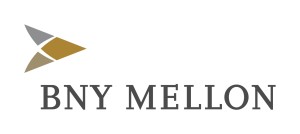 Lebanon remains a beacon of light in a sadly troubled region, partly due to the strength and reliability of its banking sector. As trade flows shift, regulatory requirements increase and regional uncertainties continue, Cash & Trade sat down with a number of Lebanese banks at a BNY Mellon-hosted roundtable in Beirut
Lebanon remains a beacon of light in a sadly troubled region, partly due to the strength and reliability of its banking sector. As trade flows shift, regulatory requirements increase and regional uncertainties continue, Cash & Trade sat down with a number of Lebanese banks at a BNY Mellon-hosted roundtable in Beirut
Cash & Trade: The Phoenicia Hotel here in Beirut seems a fitting location for our conversation, as the Phoenicians were arguably the world’s first global traders and Lebanon has long been a key trading hub. How is trade evolving today?
1. Hani AlMaskati, Publisher, Cash & Trade 2. Dominic Broom (host), Head of Treasury Services EMEA, BNY Mellon 3. Philippe Arbadji (co-host), Relationship Officer, BNY Mellon 4. Georges Andraos, Head of International Banking Division, Fransabank SAL 5. Moussa Abdallah, Head of Correspondent Banking Department, Bank of Beirut 6. Anthony Jabbour, Head of Financial Institutions, Credit Libanais SAL 7. Ziad Ghosn, Head of Financial Institutions Division, BankMed S.A.L. 8. Katia Massad Touma, Deputy Head of Group Financial Institution Department, Byblos Bank SAL 9. Bana Akkad Azhari, Head of Relationship Management CIS & MEA, BNY Mellon 10. Rana Shalak Beydoun, Head of Financial Institutions Department, BLOM Bank SAL
Katia, Byblos Bank: It’s changed a lot in recent years, with a clear up-tick in open account and a corresponding decrease in documentary trade instruments such as Letters of Credit (LCs). This is pushing us to be more innovative in our products.
Georges, Fransabank: It’s worth considering the history of the Lebanese banking sector. This country was built as a free economy and clients have a corresponding mind-set, meaning they initially didn’t understand the need for having to produce certain documentation for trade. But the impact of regulation has changed this, shifting us to a new kind of behaviour and changing the client relationship; clients are now more willing to share such information. Also, the Lebanese economy has always relied on activity beyond our borders – we focus not just on our local market but the bigger regional one – so recent upheavals have emphasised the importance of transparency in trade.
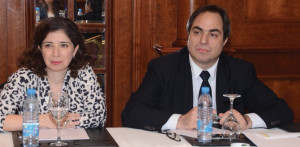
Anthony, Credit Libanais: Banking potential in the region stems from the fact that we’ve got countries around us that literally need to be rebuilt from scratch. It’s a huge opportunity for Lebanese banks because we have an onshore presence in each and every one of these countries, so thanks to this and our long experience in dealing with sometimes volatile environments, we’re strategically positioned to capture these opportunities. While any currently declining trade flows mean we’re forced to re-think geographies, we are well-equipped to cope with this. Indeed, trade finance is our core competency (more so than cash management, which is more the remit of global banks). For example, we’re looking to Africa – the Lebanese diaspora is there and we’re comfortable with the risk mitigants involved, so it’s a key target market for us.
Rana, BLOM Bank: With such risk mitigation in mind, some banks in Lebanon make use of programmes and tools such the ICIEC (Islamic Corporation for Insurance of Investment and Export Credits) and Dhaman, mainly for trade finance credit insurance.
Ziad, BankMed: Unlike other countries with similar credit ratings, Lebanese banks benefit from ample credit limits from their correspondents overseas, so we see the use of Export Credit Agencies (ECAs) more on the export (rather than the import) side (ie, ECAs cover the risk of foreign banks issuing trade finance transactions to Lebanese banks).
Rana, BLOM Bank: Lebanon is a small market compared with other countries in the region considering its population, GDP size, import volumes etc. However, Lebanese tradesmen have traditionally been very active in triangular trade, and the Lebanese banking sector has been very accommodating in servicing those clients’ cross-border needs and supporting their expansion in regional markets. We have served our clients both through our own network of subsidiaries/branches outside Lebanon and through our extensive network of correspondents.
Georges, Fransabank: Absolutely, the definition of a trade for a Lebanese bank is one that goes beyond the country; it’s really more global and that is embedded in our culture.
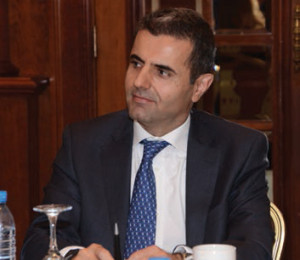
Ziad, BankMed: Between 2010 and 2011, the total volume of imports jumped by around 12-15 per cent. Usually it’s flat or growing by ¾ per cent with no large swings, so this recent surge is clearly because of the crisis and the resulting movement of refugees. So there’s no doubt regional changes affect Lebanese trade. Also, if you look at figures like the total consolidated number of export LCs, they may not correspond with Lebanon’s export levels. This shows the active role of Lebanese banks in offering trade finance capabilities to their customers regionally and internationally through their overseas presence.
Anthony, Credit Libanais: Look at the difference between Lebanese banks and GCC banks, in terms of their wider regional footprint. Lebanese banks have an onshore presence in each and every one of these countries, because we’re attuned with the inherent uncertainties that are prevalent in these markets, and it’s this understanding that drives part of our business model.
Cash & Trade: Talking about other markets, are your corporate customers showing interest in RMB-denominated LCs, for example?
Ziad, BankMed: We were the very first bank in Lebanon to open an RMB account and to offer RMB-denominated solutions to our customers. Today, the activity in RMB that Lebanese banks are seeing remains shy due to a lack of demand.
Anthony, Credit Libanais: It’s the exporters who will define demand. There was more talk about it two or three years ago than there is now. Limited flows in RMB and Chinese exporter appetite for USD (for obvious reasons) has kept the RMB business at bay.
Ziad, BankMed: Banks have a role to raise awareness around RMB – but, ultimately, corporates (on both the import and export side) will be looking for some added value before they consider shifting to RMB.
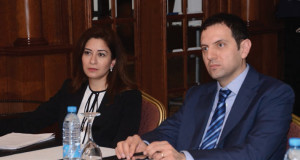
Bana, BNY Mellon: Absolutely – it’s our role to raise awareness, and to conduct market analysis to uncover what types of opportunities there might be for the banking sector and for corporates. Any action we’re currently seeing is more on the receivables side; something the actual importer might not be aware of. So there’s still a long way to go.
Anthony, Credit Libanais: It’s a pertinent question, as Chinese companies will be positioning themselves for oil-related opportunities in Iraq, in Lebanon, in Libya – both the drilling and in terms of related contractor work and infrastructure.
Georges, Fransabank: Yes, China is important for us; we are the first bank in the region to have established a China desk with the objective to promote and facilitate exchanges between Lebanese and Chinese businesses using the Fransabank platform, and assist Chinese companies in their activities in our region. We have also launched a co-branded Fransabank Union Pay card that can be used specially in China (at ATMs in local currency, for example) for people travelling there.
Cash & Trade: How much is technology helping to drive trade? With regard to supply chain financing (SCF) or discounting receivables, for example.
Anthony, Credit Libanais: In terms of SCF, global banks have the edge thanks to their on-the-ground network. For us, opportunities are currently few and far between, but Africa is the market of the future. And don’t forget regional countries that will need to be rebuilt.
Bana, BNY Mellon: We are very strong advocates of local-global banking partnerships; a model that marries the strengths of both parties to provide added-value and enhanced service levels to clients – in terms of knowledge, experience and technology capabilities. And of course, it’s important that such offerings can be tailored to meet specific local market needs, under non-compete terms.
Ziad, BankMed: We do finance receivables in Lebanon, but volumes remain smaller than other markets such as the UAE, for example, where factoring plays a big role.
Anthony, Credit Libanais: Before developing more innovative technology to support supply chains (around processing, for example), you need the business volumes to justify the investment.
Ziad, BankMed: Factoring is not a widely-used instrument in this market, and while banks have invested a lot in technology over the past decade, this has primarily been around compliance and fraud prevention as well as treasury and brokerage. But I think we’re all exploring the next step in terms of technology for cash management and trade finance.
Cash & Trade: What about SMEs, how are they being served?
Anthony, Credit Libanais: The SME business is a profitable one and the central bank has adopted a number of measures to encourage us to lend to SMEs. That said, the pool of SME business is relatively small. When you have a commercial sector balance sheet of 180 billion dollars, and banks are exposed to the government to the tune of around 40-50 billion dollars, and you have cash and private sector loans, that in itself defines the structure of the banking sector. To be frank, the economic situation in the region and by extension the country isn’t great, but for Lebanon it could have been much worse than it is today. For instance it used to be Syria watching us from the sidelines, but now we’re watching them – there are just so many factors at play. And this impacts SCF; SMEs bring raw materials from abroad, not locally, so SCF doesn’t exist in Lebanon – it exists abroad. So first it is about defining the potential in this line of business, and then investing in the technology that will accommodate it.
Rana, BLOM Bank: Remember how liquid Lebanese banks are; an important factor is that the market still favours traditional financing over SCF. We never have to go to the market to borrow in order to finance our clients. The banking sector has an average loan to deposit ratio of 35 per cent, so we’re excessively liquid.
Anthony, Credit Libanais: In turn, Lebanese banks aren’t subject to events in the global capital markets, which is why we didn’t lose a single dollar from the fallout from the global financial crisis. This is where Lebanon’s regulatory framework comes into play; our central bank doesn’t allow Lebanese banks to speculate on real estate, trade derivatives, or make placements with entities rated below investment grade, and we’re only allowed to keep open positions equivalent to one per cent of our capital.
Cash management and online banking
Cash & Trade: Turning to cash management, how is that evolving? What role does technology have to play?
Anthony, Credit Libanais: We’re in the process of developing a corporate cash management system; a platform from which we can provide end-to-end solutions around cash and liquidity management. Our clients say their two most important needs are trade and payments, and this platform will enable automation, making it easier for them. While there hasn’t been a great deal of appetite for liquidity management, that does vary across business sectors.
Ziad, BankMed: Technologically, we do offer online cash management capabilities for our corporate and retail clientele. Cash management needs in the market are met, but there is more that can be done for the product itself. That said, funds transfer as a product has changed tremendously from a regulatory perspective, and the technology and control systems around it have changed as well. Banks are investing significantly in IT system upgrades, in line with compliance, so it is an area of focus. Most banks now have online banking capabilities and have strengthened in terms of controls. We see additional development coming along in terms of product offerings and capabilities from a technological perspective.
Anthony, Credit Libanais: This is more popular amongst major corporates, such as those in the oil sector, as they’re used to similar applications abroad and are, therefore, more receptive to the idea. But by and large, our clients still prefer to conduct their banking relationships offline. If we could persuade them to conduct their payments online, it would save us up to four working days a year in labour – but we’re not there yet, partly because we, as Lebanese people, like to talk! It’s a cultural thing; our customers prefer the personal face-to-face approach.
Bana, BNY Mellon: Appetite for technology investment in general varies across the region, with demand in the local Lebanese market being affected by a number of factors. As well as culture, there are concerns regarding electronic signature legislation and fraud, for instance.
Ziad, BankMed: Also, because of regulation, even our online banking payments require additional offline documentation. For example, in order to allow electronic signatures, we must first get customers to sign paper documents. Furthermore, we see that the most important factor that online banking needs in Lebanon is a modern legal and regulatory framework that does not yet exist.
Georges, Fransabank: Fraud is a concern. I don’t mean online fraud – it’s certainly not happening on the platforms of the banks – but it’s enough of a concern elsewhere that clients become reluctant to try new payment tools; they’d prefer to sign a piece of paper and hand it over in person. Fraud also has an impact on banks’ reputation, as none would like to see their name involved in fraudulent transactions – the number of which is increasing from hackers.
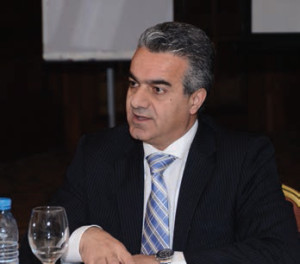
Moussa, Bank of Beirut: I believe local banks are much more vigilant about such risks; we know who we’re dealing with.
Georges, Fransabank: Yes – in Lebanon many of our corporate clients are familiar family businesses. But that has a flipside, in that if someone has been running their business a certain way for 40 or 50 years, we’re less likely to be able to persuade them to try online banking.
Investing in innovation
Cash & Trade: What are your priorities in terms of investment in innovation?
Rana, BLOM Bank: Compliance-related software and human capital. Not because we’ve been asked to, but because the whole industry has evolved over the past few years and compliance is the focus for banks on a global level, not just in Lebanon.
Katia, Byblos Bank: Yes, our priorities now are the upgrade and enhancement of our working environment systems and compliance software.
Anthony, Credit Libanais: But this doesn’t mean we’re not investing in other things as well (such as our corporate cash management platform). Regardless of what else is going on, you must invest in technology. Bank Audi were ahead of the curve in that respect – they invested heavily in technology and were at the time criticised for their strategy, but now they’re way ahead of the pack.
Ziad, BankMed: Agreed; while we’re investing in technology that supports compliance, we’re all also investing in other systems. We have to in order to keep our customers well-served, currently and throughout their expansion both locally and overseas. We’re investing in our core banking systems and working with vendors, and this investment is a continuous process. Furthermore, it’s worth mentioning that Lebanon is an IT hub, and a large number of IT companies and engineers work out of Lebanon on projects overseas. So we have the technology, the know-how and the entrepreneurship, meaning it would be interesting to have this debate in the near future, to see what’s changed.
Expanding horizons
Georges, Fransabank: Ziad is right; we need to invest in order to keep up with our clients and support them as they expand into other markets. But when going into a new market, the most important thing is to try to be a local bank. It’s never easy as you have to accommodate to new regulations, for example, but you’ve got to view it on a long-term basis and become really embedded, working with both the Lebanese diaspora and local people.
Katia, Byblos Bank: It is vital to follow client needs in the markets in which they are excelling.
Cash & Trade: Do these new markets include Latin America? There is a huge Lebanese community there, but your focus seems to on Africa instead – why is it different in terms of the opportunity?
Bana, BNY Mellon: It has to do with strength of the ties. The Lebanese community in Latin America is fourth or fifth generation, whereas the Lebanese diaspora in Africa is more recent.
Anthony, Credit Libanais: And the Lebanese in Africa come back here more often, whereas it’s just too far for those in Latin America.
Regulatory requirements
Cash & Trade: We’ve touched on regulation in terms of restrictions imposed by the central bank, but how are other regulations such as Basel III impacting Lebanon?
Ziad, BankMed: With regard to implementing Basel III, Lebanon is ahead. The central bank has done a great job by being more conservative, and has brought Basel III deadlines forward and is translating the rules more conservatively. For example, Basel III’s minimum total capital ratio for end 2015 is 8.6 per cent, but, for Lebanon, it is 12 per cent. The minimum Tier 1 capital requirement is six per cent, but in Lebanon it is 10 per cent. The minimum common equity requirement is 5.1 per cent, but in Lebanon it is eight per cent. So we are always more conservative.
Moussa, Bank of Beirut: Don’t forget that in Lebanon the banking sector is three- and-a-half times the size of the economy – it really is the backbone of the country – so this is a sensible approach.
Georges, Fransabank: And we benefit from a cordial, well-tuned relationship with the regulator. If the central bank decides banks have to comply with something (let’s take FATCA as an example) then the banks comply; today we are probably the banking sector that is at the most advanced stage of FATCA implementation. The moment the central bank gives a directive, we execute.
Bana, BNY Mellon: Lebanese banks are ahead of the game in ensuring they are up to date with all the regulations that could impact their relationship with the rest of the world. As Georges mentioned, we really see a very good and harmonious working relationship between the banking sector and the central bank. After all, they are working together towards a common interest, which is promoting the banking sector as the pillar of the economy and ensuring it is seen in a good light abroad. This is important because the economy is not one that can exist in isolation.
Ziad, BankMed: Exactly. In fact, in terms of compliance regulations, you’ll find here a unique requirement in that the central bank insists that each Lebanese bank be compliant not just with local regulations but also with the regulations of the foreign correspondent banks with whom each bank deals.
Rana, BLOM Bank: Most of the Lebanese banks were individually compliant with international norms before the issuance of the central bank circular. This has facilitated business and has definitely improved our relationships with our correspondents. In addition, the Association of Lebanese Banks has been extremely proactive on the international scene, especially in maintaining a continuous dialogue with correspondents and regulators.
Georges, Fransabank: In terms of harmonious relationships, there is also a big effort around communication between our banks – both via the banking association and on a personal level.
Cash & Trade: How does regulation work around Islamic banking; is it something you offer?
Anthony, Credit Libanais: We do via a subsidiary, as do BLOM Bank. Regulation stipulates that we cannot have an Islamic desk. That said, I don’t really see much appetite for it in Lebanon.
Rana, BLOM Bank: I see appetite, via our subsidiary – mainly for trade.
Anthony, Credit Libanais: It’s a cultural thing. By and large, Lebanese traders have become so accustomed to conventional banking that actually, to them, Islamic banking seems foreign.
New opportunities
Cash & Trade: Away from regulation, what other developments are shaping the market?
Ziad, BankMed: Lebanon’s oil and gas resources – once exploited, will have a tremendous impact on trade; it will take us to the next level. Not just for the drilling industry, but many more sectors and industries built around oil.
Anthony, Credit Libanais: I’d add a caveat in that our public debt is massive, and by the time we start drilling and ramping up production, I’m not sure how much of that windfall of revenues will trickle down. No doubt it will create confidence, but it might not be as rosy a picture as people expect.
Ziad, BankMed: Also, it’s too early to say how much revenue oil will bring – we don’t know how much money these oil and gas reserves will generate. We can’t take the current oil price as the future market price. Plus it’s the whole economy around it – the indirect benefits are much greater.
Georges, Fransabank: It’s definitely got great potential, but I agree with Anthony that it will have to be well managed.
Cash & Trade: What about on a regional level? Anthony, you mentioned the countries around Lebanon that will need to be rebuilt; will Lebanon benefit from contractor work, for example?
Anthony, Credit Libanais: Lebanon is ideally positioned to do so, because we have learnt to understand and live with uncertainty. It’s part of our business model and part of our mindset. And we’re successful in other countries because we have a hands-on approach when we go to a new market. Look at the Bank of Beirut.
Moussa, Bank of Beirut: Yes, we currently have three branches in the Sultanate of Oman and our fully-owned subsidiary in Australia has 16 branches. We also have subsidiaries in the UK and Germany and a branch in Cyprus.
Anthony, Credit Libanais: Moreover, our Lebanese companies are also attuned to the uncertainties that come with operating in these countries. They will use their facilities with Lebanese banks to expand their footprint in the region as they have done in the past.
Bana, BNY Mellon: Of course, regional events since 2011 have had an impact on banks’ balance sheets, certainly in terms of the profitability of their regional operations, but at the same time banks are applying their risk management dynamics to these operations; they understand it and can adapt to it.
Rana, BLOM Bank: In terms of emerging opportunities, Egypt is another example for us. Egypt is very promising, and again it’s all about our hands-on approach. Our local team there knows the market very well indeed, and that is the key to our success.
The views expressed herein are those of the authors only and may not reflect the views of BNY Mellon. This does not constitute treasury services advice, or any other business or legal advice, and it should not be relied upon as such.
 Cash And Trade Magazine For Cash and Trade professionals in the Middle East
Cash And Trade Magazine For Cash and Trade professionals in the Middle East





